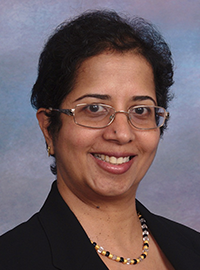Research Funding and Visibility
Dear friends of RGMA,
I hope you all are well. With any luck, we will see a gradual return to normalcy after more than a year and a half of the COVID pandemic.
Because this edition of RGMAgram has important updates about a Funding Opportunity Announcement (FOA), we are sending the newsletter to a broader community. I encourage you to use this as an opportunity to subscribe. Please forward this newsletter to colleagues who may be interested.
New Project Teams and Funding Opportunities
I want to welcome eight new projects and their research teams to Regional & Global Model Analysis (RGMA). Each will help build a better understanding of topics, ranging from an improved representation of ecological systems and cloud-aerosol interactions to quantifying uncertainties across a range of processes, scales, time horizons, and regional impacts. We’re very excited about these projects!
In the upcoming year, we are looking forward to adding more projects (with possible participation from national labs) through the Earth System Model Development and Analysis FOA. The RGMA component of this FOA solicits applications that focus on enhancing our understanding of the global and regional water cycle, climate variability, and extremes. As you read through the FOA, you will realize that it emphasizes the use of DOE’s Energy Exascale Earth System Model (E3SM) in addition to other modeling tools. Please visit E3SM.org for more information about E3SM. Also, note that pre-applications are due on January 5, 2022, at 5 p.m. Eastern time. This allows more time to form collaborative proposal teams. Do not hesitate to reach out to me if you have questions or need clarifications.
Please check out other DOE FOAs, including the Advanced Scientific Computing Research (ASCR) Leadership Computing Challenge (ALCC).
Get Ready for AGU
If you or a member of your team is presenting at the 2021 American Geophysical Union (AGU) Fall Meeting from December 13 to 17, please be sure to share your abstract information on our website. This creates an EESM-relevant guide for those attending AGU either virtually or in person.
As you plan for AGU, note that the virtual town halls start the week before the main Fall Meeting. During this time, there are several town halls relevant to the RGMA portfolio:
- TH031 (December 7, 11:15 a.m. CT, Online): IARPC Townhall on Arctic System Modeling Capabilities
- TH033 (December 7, 6:15 p.m. CT, Online): Interagency Town Hall on Precipitation Processes and Predictability
- TH026 (December 8, 11:15 a.m. CT, Online): DOE’s Earth and Environmental System Modeling: Opportunities in Coastal Systems, Urban Resilience, and Extreme Events
- TH016 (December 8, 6:15 p.m. CT, Online): Integrated Research in Mountainous Hydroclimate at the U.S. Department of Energy
- TH032 (December 9, 11:15 a.m. CT, Online): DOE’s Integrative Artificial Intelligence Framework for Earth System Predictability: AI4ESP
- TH002 (December 9, 11:15 a.m. CT, Online): Building a More Diverse Scientific Community: Research Opportunities in DOE’s Office of Biological and Environmental Research
Beyond sharing your science at major conferences, like AGU and the upcoming American Meteorological Society (AMS) Annual Meeting, there are many opportunities to participate in efforts within DOE’s Earth and Environmental System Modeling. A great example is last fall’s NOAA-DOE Precipitation Processes and Predictability Workshop, which is not only resulted in a high-profile report and new publications, but it helped form the basis for new research collaborations.
Visibility for Your Research
To all RGMA scientists, I want to acknowledge the productivity and professionalism of your work. The pandemic has been a test for us all—personally and professionally. It’s not easy, yet I’ve been proud to work with each one of you. I hope you appreciate how critical your work is to our broad understanding of the world around us.
We know you are doing great work, but we need to consistently represent your contributions to the scientific community. So please let us know about your publications, and for each, prepare a research highlight, including an overview slide.
We try to make it as easy as possible under the “Research Highlight” menu on our website. Start by entering your DOI for each publication, and work through the forms to ensure that your entire team is recognized for their contributions. Double-check the form fields. As you complete the research highlight fields, please provide thoughtful information about the science, its impact, and a broad summary of your work.
Other Important Notes
Earlier this year, we were happy to welcome Olga Tweedy to the EESM management team. Many of you are already working closely with Olga and the Artificial Intelligence for Earth System Predictability (AI4ESP) multi-lab initiative. She has also been a key member of the AI4ESP workshop team. Click here for more details on the workshop.
Many of you reading this have the opportunity to work with the high-performance computing resources of the National Energy Research Scientific Computing Center (NERSC). If these resources have been a part of your work, you must acknowledge NERSC in papers and presentations.
If you have questions about our expectations for RGMA or are seeking additional ways to participate with the RGMA community, I would love to talk.
— Renu Joseph, RGMA Program Manager

